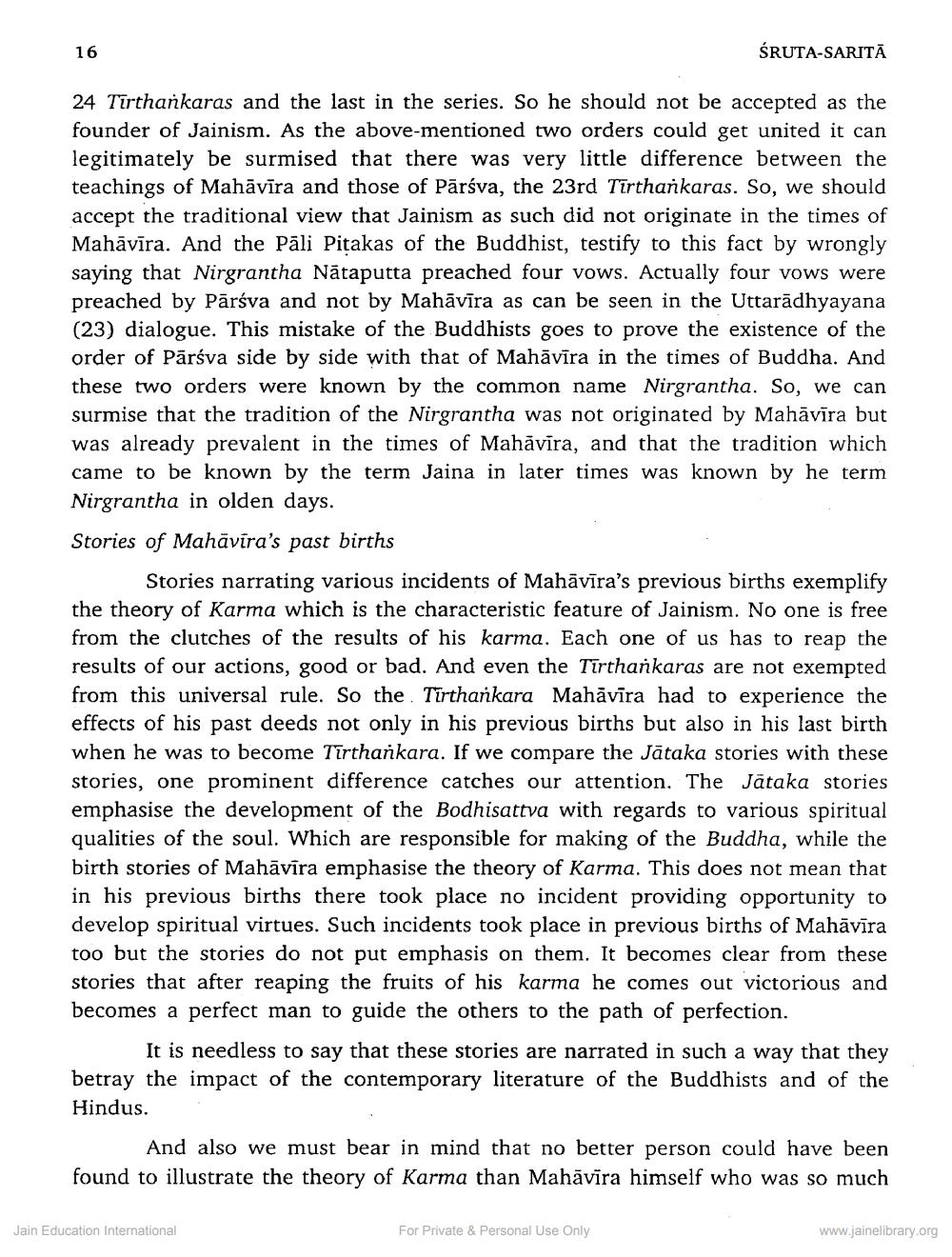________________
16
24 Tirthankaras and the last in the series. So he should not be accepted as the founder of Jainism. As the above-mentioned two orders could get united it can legitimately be surmised that there was very little difference between the teachings of Mahāvīra and those of Pārsva, the 23rd Tirthankaras. So, we should accept the traditional view that Jainism as such did not originate in the times of Mahāvīra. And the Pāli Pitakas of the Buddhist, testify to this fact by wrongly saying that Nirgrantha Nātaputta preached four vows. Actually four vows were preached by Pārsva and not by Mahāvīra as can be seen in the Uttaradhyayana (23) dialogue. This mistake of the Buddhists goes to prove the existence of the order of Pārsva side by side with that of Mahāvīra in the times of Buddha. And these two orders were known by the common name Nirgrantha. So, we can surmise that the tradition of the Nirgrantha was not originated by Mahāvīra but was already prevalent in the times of Mahavira, and that the tradition which came to be known by the term Jaina in later times was known by he term Nirgrantha in olden days.
Stories of Mahävira's past births
Stories narrating various incidents of Mahāvīra's previous births exemplify the theory of Karma which is the characteristic feature of Jainism. No one is free from the clutches of the results of his karma. Each one of us has to reap the results of our actions, good or bad. And even the Tirthankaras are not exempted from this universal rule. So the Tirthankara Mahāvīra had to experience the effects of his past deeds not only in his previous births but also in his last birth when he was to become Tirthankara. If we compare the Jātaka stories with these stories, one prominent difference catches our attention. The Jätaka stories emphasise the development of the Bodhisattva with regards to various spiritual qualities of the soul. Which are responsible for making of the Buddha, while the birth stories of Mahāvīra emphasise the theory of Karma. This does not mean that in his previous births there took place no incident providing opportunity to develop spiritual virtues. Such incidents took place in previous births of Mahāvīra too but the stories do not put emphasis on them. It becomes clear from these stories that after reaping the fruits of his karma he comes out victorious and becomes a perfect man to guide the others to the path of perfection.
ŚRUTA-SARITĂ
It is needless to say that these stories are narrated in such a way that they betray the impact of the contemporary literature of the Buddhists and of the
Hindus.
And also we must bear in mind that no better person could have been. found to illustrate the theory of Karma than Mahāvīra himself who was so much
Jain Education International
For Private & Personal Use Only
www.jainelibrary.org




